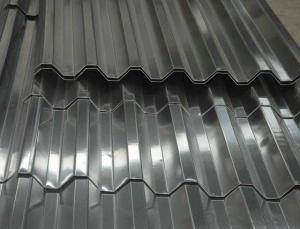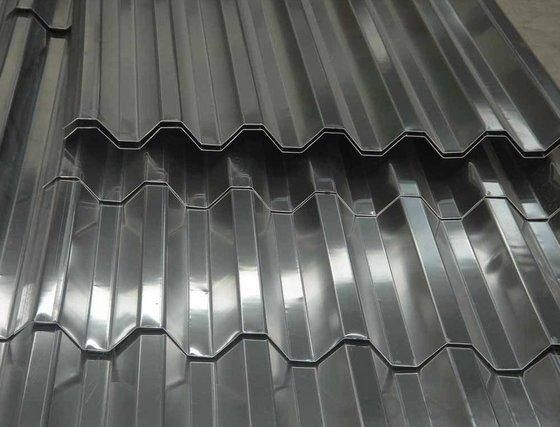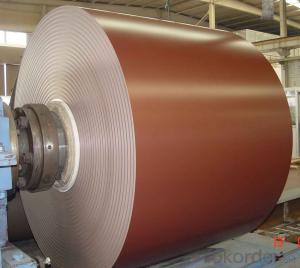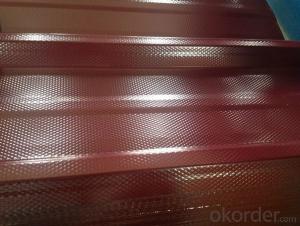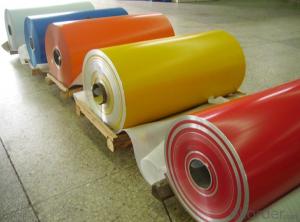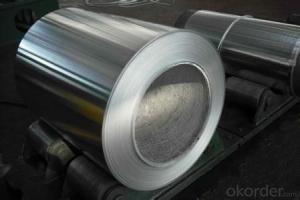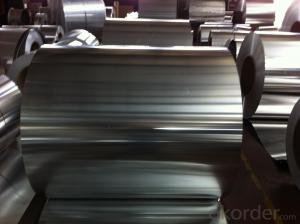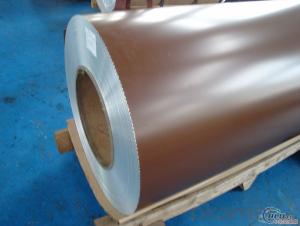027 Aluminum Coil - Alloy 3003 Aluminum Roll for Roofing/Ceiling/Gutter/Decoration
- Loading Port:
- Tianjin
- Payment Terms:
- TT OR LC
- Min Order Qty:
- 2 m.t.
- Supply Capability:
- 60000 m.t./month
OKorder Service Pledge
OKorder Financial Service
You Might Also Like
Specification
Alloy 3003 Aluminium Roll for Roofing/Ceiling/Gutter/Decoration
Specification
Aluminium sheet | |||||
Alloy No. | Thickness (mm) | Width (mm) | Length (mm) | Temper | |
A1050,A1060, A1070, A1100 | 0.2-100 | 20-2200 | 20-8000 | O,H12,H22,H14,H16,H18, H24,H26,etc | |
3A21, A3003, A3105, A3004 | 0.2-100 | 20-2200 | 20-8000 | O,H14,H18,H24,etc | |
A5052, A5005, A5083, A5754 | 0.2-100 | 20-2200 | 20-8000 | O,H18,H24,H32,H34,H111,H112 ,etc | |
A6061, A6082, A6063 | 0.2-200 | 20-2200 | 20-8000 | T4,T6, T651,etc | |
A8011 | 0.2-100 | 20-2200 | 20-8000 | O,H12,H22,H14,H16,H18,H24,H26, etc | |
Packing: Export wooden pallets. The bundle weight not exceed 2MT. Loading: by 1x20GP, 1X20GP can load about 18MT | |||||
Standards: ASTM-B209. EN573-1, GB/T3880.1-2006 | |||||
Quality of material: totally free from defects like white rust, oil patches, roll marks, edge damage, camber, dents, holes, break lines, scratches and free from coil set | |||||
Application : Mainly used insigns, billboards, building exterior decoration, bus body, high-rise buildings and factories wall decoration, kitchen sink, lamp, fan leaves, with pieces of electronic, chemical equipment, sheet metal processing parts, deep drawing or spinning hollowware, welding parts, heat exchangers, bell surface and disk, plate, kitchenware, decorations, reflective devices, ect | |||||
MOQ | 5 tons | ||||
Payment term | T/T,L/C | ||||
Delivery Time | 15-60 days after 30% T/T payment or receiving L/C copy | ||||
Kind attention: Specifications can be customized as the customer’s requirements. | |||||
Packing
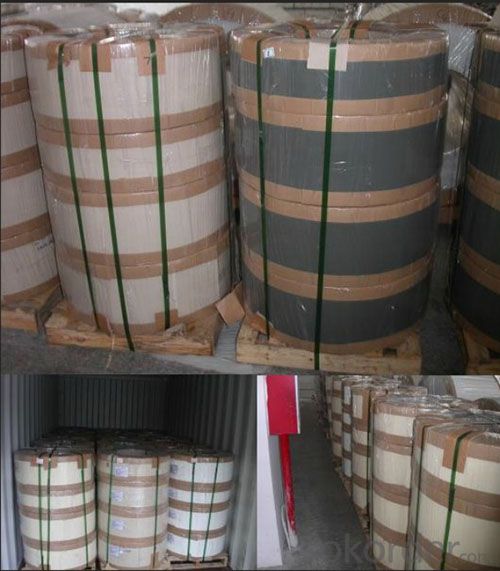
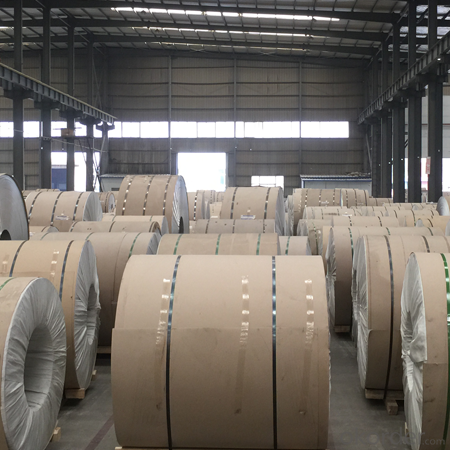
FAQ
Q: How can I request a product sample? A: The samples are free but freight should be collected. Please send sample list and courier account number by email.
Q: How can I request a product catalog? A: The hard copies of catalogs are free but freight should be collected. Please send courier account number by email. You are suggested to request a PDF catalog.
Q: Wha's your payment terms? A: One is T/T 30% before production and 70% against copy of B/L; the other is Irrevocable L/C 100% at sight.
Q: What's your trade terms? A: FOB, CNF(CFR), CIF, EXW.
Q: How long is the quality guarantee? A: All of our products have a period of quality guarantee since time of shipment. Please contact your salesman for more details, as different products enjoy different time of guarantee
- Q: What causes tower after cutting aluminum coil
- Insulation aluminum coil will appear when the cooling bending phenomenon, reason is generally under the conditions of air cooling, the heat transfer coefficient of the aluminum coil insulation parts in contact with the air were flat, but because the wall thickness or different shapes, different parts of the heat dissipation rate is not balanced, resulting in thick wall or hollow tube heat faster than the thin Department of slow, resulting in insulating aluminum roll cooling occurs to the hollow part.
- Q: Is it possible to construct a bird feeder using an aluminum coil?
- <p>Yes, you can use an aluminum coil to make a bird feeder. Aluminum is lightweight, durable, and resistant to rust, making it a suitable material for outdoor use. To create a bird feeder, you can form the coil into a hanger or support structure, then attach a feeding platform or container where birds can access the food. Ensure the structure is stable and safe for birds to perch and feed. Remember to use appropriate tools and safety measures when working with aluminum, and consider painting or coating the coil to enhance its appearance and protect it from the elements.</p>
- Q: Is it safe and practical to use aluminum coils in cooking processes?
- <p>Aluminum coils can be used for cooking, but with certain precautions. They are commonly used in commercial kitchens for their heat conductivity and durability. However, for home cooking, it's important to avoid acidic or alkaline foods, as aluminum can react with them. Additionally, prolonged exposure to heat can cause aluminum to leach into food, which some studies suggest may have health implications. It's advisable to use aluminum cookware with a protective coating or opt for alternative materials like stainless steel or cast iron for health-conscious cooking.</p>
- Q: Can aluminum coils be recycled?
- Yes, aluminum coils can be recycled. Aluminum is a highly recyclable material and can be melted down and reused multiple times without losing its properties. Recycling aluminum coils helps to conserve natural resources and reduce energy consumption.
- Q: How are aluminum coils protected against UV degradation?
- Aluminum coils are often safeguarded against UV degradation by applying protective coatings or treatments, which act as a barrier between the aluminum surface and harmful UV rays from the sun. These protective coatings, like polyvinylidene fluoride (PVDF) or polyester coatings, are specifically formulated to resist UV radiation and create a durable layer that shields the aluminum coil from prolonged sun exposure. Another method of protection is anodizing, an electrochemical process that creates a protective oxide layer on the aluminum surface. This oxide layer acts as a barrier against UV rays, preventing them from reaching the underlying metal. Anodized aluminum coils are well-known for their excellent resistance to UV degradation and are commonly used in outdoor applications that require long-lasting durability. In addition to these coatings and treatments, aluminum coils can be designed with specific alloy compositions that enhance their resistance to UV degradation. Incorporating certain alloy elements like magnesium and manganese can improve the natural ability of aluminum to withstand UV radiation, increasing the overall durability and UV resistance of the coil. In conclusion, protecting aluminum coils against UV degradation is crucial when they are exposed to sunlight. By utilizing protective coatings, anodizing, or selecting appropriate alloy compositions, manufacturers can effectively safeguard the coils, ensuring their long-term performance and durability even in challenging outdoor environments.
- Q: What are the pros and cons of utilizing aluminum coils in storage applications?
- <p>Aluminum coils offer several advantages for storage, including high durability, corrosion resistance, and lightweight properties which make them easy to handle. They are also recyclable and have good thermal conductivity, which can be beneficial in temperature-controlled environments. However, there are downsides such as higher initial costs compared to some other materials and potential for denting or damage if not properly handled. Additionally, while aluminum is generally non-magnetic, it can be attracted to strong magnets, which might be a consideration in certain storage scenarios.</p>
- Q: Can aluminum coils be used in automotive body panels?
- Automotive body panels can indeed utilize aluminum coils. Being both lightweight and corrosion-resistant, aluminum proves to be a suitable material for automotive purposes. The employment of aluminum coils in body panels yields numerous benefits, such as enhanced fuel efficiency owing to the reduced vehicle weight, improved handling and maneuverability, and increased durability. Moreover, aluminum boasts high recyclability, rendering it an environmentally conscious alternative for automotive production. Numerous automakers have already begun integrating aluminum coils into their vehicles, and this trend is anticipated to persist as the industry aims for lighter and more environmentally sustainable automobiles.
- Q: When aluminum metal is heated with an element from group VIA of the periodic table, an ionic compound forms. When the experiment is performed with an unknown croup VIA element, the product is 18.56% Al by mass. What is the formula of the compound and what is its name?
- Al2Se3 aluminum selenide
- Q: Can aluminum coils be used for heat exchangers?
- Indeed, heat exchangers can make use of aluminum coils. Aluminum has gained popularity as a favored option for heat exchangers owing to its exceptional thermal conductivity, light weight, and resistance to corrosion. These coils usually find application in scenarios where heat transfer is necessary, such as HVAC systems, refrigeration units, and automotive radiators. Aluminum's high thermal conductivity enables efficient heat transfer, while its corrosion resistance guarantees durability and an extended lifespan for the heat exchanger. Moreover, aluminum coils can be effortlessly molded into different shapes and sizes, thereby showcasing their versatility for various heat exchanger designs.
- Q: What are the environmental benefits of using aluminum coils?
- The environmental benefits of using aluminum coils include their high recyclability, low carbon footprint, and energy efficiency. Aluminum is one of the most recycled materials in the world, reducing the need for mining and extraction of new raw materials. Recycling aluminum coils requires significantly less energy compared to making new ones from scratch, resulting in reduced greenhouse gas emissions. Additionally, aluminum coils have excellent heat transfer properties, enabling more efficient cooling and heating systems, which ultimately reduce energy consumption and contribute to a greener environment.
Send your message to us
027 Aluminum Coil - Alloy 3003 Aluminum Roll for Roofing/Ceiling/Gutter/Decoration
- Loading Port:
- Tianjin
- Payment Terms:
- TT OR LC
- Min Order Qty:
- 2 m.t.
- Supply Capability:
- 60000 m.t./month
OKorder Service Pledge
OKorder Financial Service
Similar products
Hot products
Hot Searches
Related keywords
